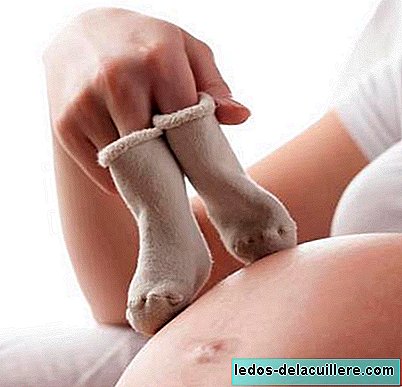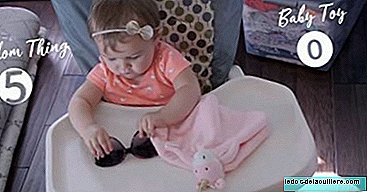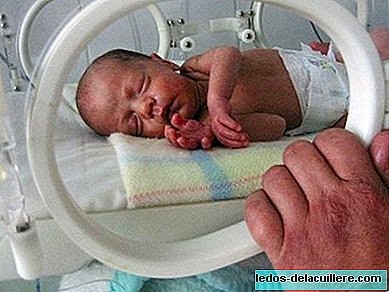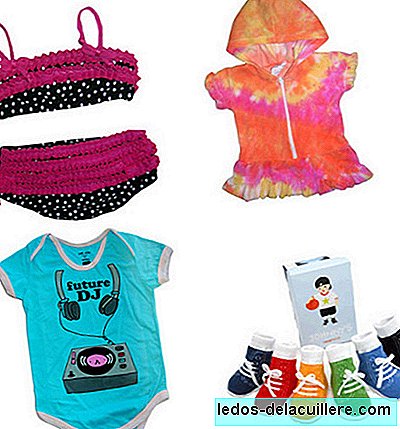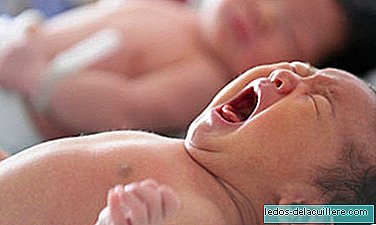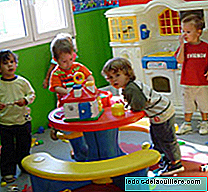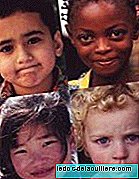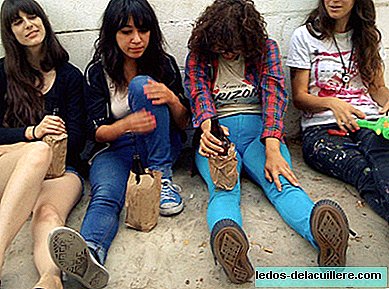
An article written by professionals of the Pediatric Emergency Department of the Bilbao hospital of Cruces, indicates that the age of patients who go to the emergency department due to alcohol poisoning has decreased. The most common pattern corresponds to young people aged 13 to 14 who consume ethanol for recreational purposes.
The study was published last year in 'Emergencies', and it is noteworthy to see the increase in these types of consultations in children as young as 13! A proposal that we have all heard about this week, suggests that parents can be fined if their minor children repeatedly go to the emergency room because of alcohol abuse. The idea has emerged from the National Drug Plan, and has sparked a lot of controversy. This is good, I mean talk about it, and that we all know that children have access to alcohol from an early age. Do not forget that it is a drug, the most consumed in Spain, and that children are much more vulnerable to its effects.
But what part of responsibility do parents have?
Let's see if I clarify: we live in a country with a very high social permissiveness regarding alcohol consumption, children are surrounded by advertising that encourages alcoholic beverages (yes: disguised as if they were a means of getting pleasure, success and happiness), and adult models (I do not say of parents and family, but sometimes also) , adopt excessive consumption patterns that associate with fun or avoidance of problems.
And after all that, the only fault of the child who arrives at the ER with an ethyl coma is the responsibility of the parents because they have given up their duties. They are the only ones we should all look at, and whom the authorities would sanction ...
I personally did not just see it, obviously parents have to educate our children, and that implies offering models of healthy consumption, and also a preventive intention, in order to avoid contact with drugs at an early age, or to minimize risks. But does the entry of a minor in unfortunate conditions to the Hospital exempt from responsibility the manufacturers of alcoholic beverages, and the seller of the grocery store?
Look, I did my university studies practices in a group of Rehabilitated Alcoholics, and I have worked for many years in care and prevention of drug addiction. I know what it is to develop informative actions with groups of teenagers and parents, and I have a fairly global vision of this complex problem, so I can assure you that the solutions should also be more global.
For the president of the Family Policy Institute, the fine would only become a measure to raise more, without solving the problem
So who are responsible?
Our children are living in a society in which they are encouraged to consume (of all, the question is to do so), and in which they receive dozens of stimuli to get pleasure immediately. Drugs fulfill this function, they are dangerous (a lot) yes, but whoever makes them (legally or illegally) responds to an artificially created need.
Sometimes I wonder what sense the Prevention Campaigns have, if they can counter the new formats, colors, etc. of alcoholic beverages, and the supposed 'benefits' attributed to them, without counting on the publicity that brings them closer to the youngest. It is a tremendous social hypocrisy!
Families do have to educate, this is clear ... let's not wait for the child to have 12 to talk about the subject, then his colleagues will have anticipated. Drugs and the ability to refuse them should not be a taboo subject at home, not when an information of an alcoholic beverage can be reached when accessing information on the Internet, or when waiting at the bus stop, we find beautiful and successful young people who they take X mark of ...

Do young people have responsibility? Of course, because a 12-year-old child is not able to anticipate what will happen to him after drinking alcohol in an uncontrolled way, but little by little they should be demanded a sense of responsibility with themselves and with others. This is another point where I have not just seen clearly the role of the penalty to parents, if you pay dad or mom, the child does not receive a direct consequence in relation to their actions (except of course, that money is discount of the weekly allowance, or do not buy the new bike).
The solutions?
Some seem very far away, but not unattainable ... Let's start with the family and make parents believe they have a lot to say, let's continue with a stricter regulation of advertising.
Let's stop being such a permissive society with this legal drug, and don't let our smile escape when a 13-year-old boy has a drink at the town square bar during local festivities!
Let's educate our children in responsibility, and in the assumption of the consequences of their actions. The family can do it, and administrations too, for example, I will never understand why local entities do not require 'macro bottle' organizers to leave the place clean after using it.
We act as a model for the little ones, those of us who are parents and those who are not, those of us who have small children and those who already have them who are grown up and do not care so much about these things. When we run into a drunk person, we may think he had a bad day, but we do not transfer to children that it is something fun, but rather the immediate and short-term consequences that this behavior has.
Perhaps more investments should be made in educational prevention programs that are developed through schools ...
The delegate of the National Drug Plan says that 'tolerating or favoring by inaction the excessive and repeated consumption of alcohol is a form of abuse towards the child because it affects their future capabilities'. It refers to parents and some reason is, however, Mr. Babín must think, that in adolescence, parents are not the only reference of children, and that they are exposed to many other information and stimuli.
As a PNsD campaign says, 'Talking with them today will avoid a bad drink tomorrow', family communication is very important, and I think it is decisive and can make a difference. Economic sanctions could have some unexpected effect, such as the child avoid going to the hospital in a drunken state so that his parents do not know.
It would not be the same for the whole family to study a way to repair the damage done to the environment (if necessary), in the form of work to the community, and with a respectful and educational orientation. It is just an example, because the solution is not only in my hands, but in everyone's.
Images | Incase, Shayan (USA) More information | SEMES In Peques and More | A Finnish campaign turns parents who abuse alcohol into monsters, A study reveals that movies influence minors when it comes to drinking alcohol


